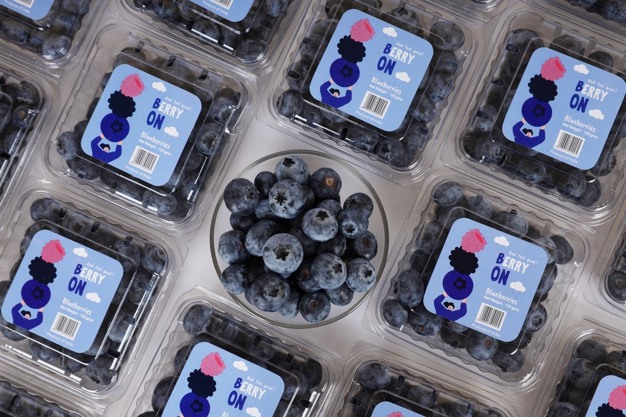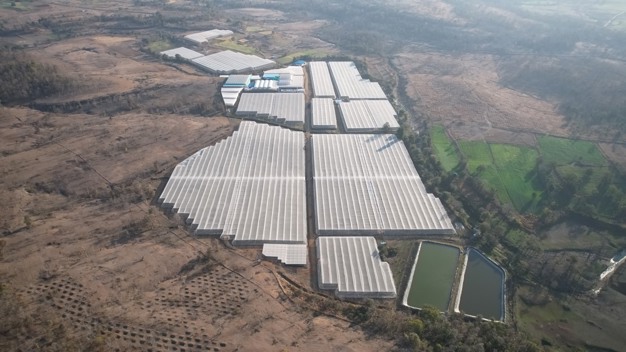The development of the blueberry sector in India over the past several years has been marked by substantial growth, driven by increasing consumer demand, technological advancements, and government support, says Shubha Rawal, head of sourcing of IG International: "Acknowledging the significant market opportunities, the Ministry of Agriculture and Farmers' Welfare has recognized a variety of globally in-demand exotic fruits, including blueberries, as commercially valuable. Consequently, the ministry has instructed state horticulture departments to increase the cultivation areas dedicated to these fruits."

Rawal states that for blueberries, the quality of blueberries cultivated in India has been advanced by new farming techniques and research. "Over the last five years, farmers and entrepreneurs in India are swiftly embracing the cultivation of exotic and high-value fruits such as blueberries. These fruits are reported to yield returns that are up to 50% higher than those of traditional local fruits, according to industry experts. Technological advancements, including the adoption of new farming techniques and research, have helped improve both yield and quality. As a result, domestic blueberry production has increased, reducing the country's reliance on imports. Blueberries have also gained popularity among Indian consumers, with greater availability in supermarkets, e-commerce and quick commerce."
The blueberries cultivated in India even find their way to European markets, occasionally, Rawal explains: "Blueberries grown in India primarily serve the domestic market, but there is also a growing focus on export. The bulk of the blueberries are sold in local markets, including APMC's wholesale markets throughout India making it accessible to consumers in large and smaller towns alike. As for the export market, Indian blueberries are being sent primarily to the Middle East, Southeast Asia and occasionally to Europe. These regions have shown interest in Indian-grown blueberries, particularly the licensed varieties, which are competitively priced compared to those from Western countries. However, the volume of blueberry exports is still in its early stages and remains small compared to domestic consumption."

IG International has moved its very own blueberry brand forward, which are gaining popularity in various export markets. "The main export markets for our self-grown blueberries, branded as 'Berry On', are in the Middle East and Southeast Asia. Key destinations in the Middle East include the UAE, Oman, Qatar, Kuwait, and Saudi Arabia, while in Southeast Asia, our blueberries are primarily exported to Singapore and Malaysia. For the 2023-2024 period, the total export volume for our blueberries reached 101,240 trays, equating to 151,860 kilograms. These markets have shown strong demand for our blueberries, as they are the licensed varieties, which are well-received due to their competitive pricing and superior quality compared to imports from other countries. The growing awareness of the health benefits, combined with attractive packaging, has made 'Berry On' blueberries even more popular and in demand."
According to Rawal, the production of blueberries in India is still growing, and there's still room to improve the yield on the already existing acreage: "Over the past few years, the acreage dedicated to blueberry cultivation has seen significant growth, driven by the increasing demand for high-quality, locally grown blueberries. Our expansive farms now cover 180 hectares in Madhya Pradesh, with 120 hectares currently under cultivation. This land is carefully managed to produce around 1,000 tons of blueberries annually, ensuring that we meet both domestic and international market needs. We aim to utilize the full 180 hectares in the coming years to boost output even further."

Rawal emphasizes that the window of opportunity was a literal one for the blueberries, as the harvesting season aligns with a period where availability for blueberries is lower. "One of our key strategies in maximizing market potential is aligning our harvesting season from December to May. By timing our harvest to coincide with a period when global blueberry production is low, we ensure that 'Berry On' blueberries occupy a prime market position, both domestically and abroad. Our state-of-the-art packing facility supports this effort, allowing us to efficiently meet the growing demand for our brand of blueberries, while maintaining quality standards. Moving forward, we are committed to continued growth and innovation, with plans to expand both our acreage and production volumes in response to the increasing appetite for blueberries. 'Berry On' is not just about expanding the acres; it's about cultivating the future of blueberry farming with a focus on quality, sustainability, and market leadership."
IG International managed to obtain a lot of knowledge regarding blueberry cultivation via a partnership with international blueberry growers: "A challenge was the lack of knowledge and expertise in blueberry cultivation, as it is relatively new to India. To bridge this gap, we partnered with international blueberry growers, Mountain Blu Australia. This partnership provided us with access to their licensed varieties and invaluable technical expertise. Additionally, we invested in training our farmers, sharing best practices and cultivation techniques that helped improve productivity and quality."

IG International doesn't just trade in blueberries, other kinds of soft fruit are also on offer. "For strawberries, the season is expected to be favorable as well, with many regions in India seeing improved productivity, due to better farming practices and access to new varieties. Other berries like raspberries and blackberries are also expected to perform well, thanks to growing interest in these fruits and their adaptability to various climatic zones in India. However, challenges to ensuring consistent quality could affect production to some extent. Overall, the berry season in India is set to see significant growth, with a strong focus on quality, expanded acreage, and increased market access. We're optimistic that the upcoming season will further establish India as a key player in the global berry market," Rawal concludes.
For more information:
Shubha Rawal
IG International PVT LTD
Tel: +91 9899487775
Email: [email protected]
www.iginternational.net
